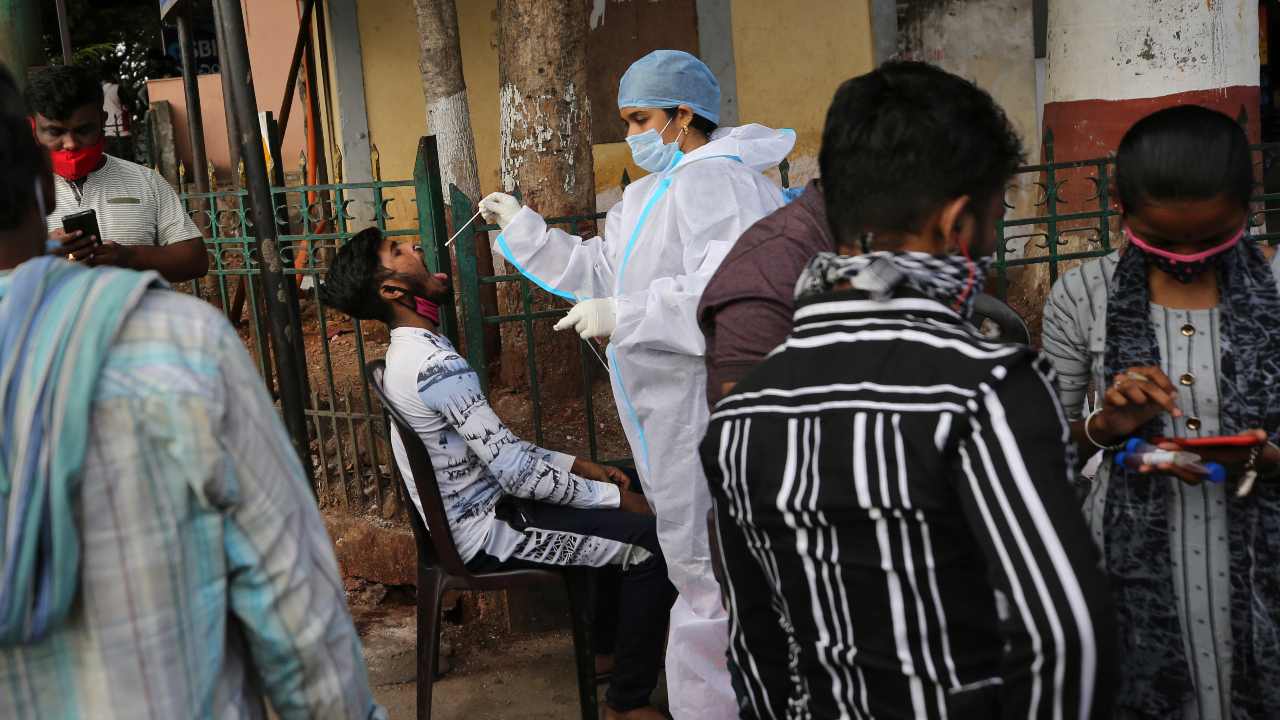New software enables early identification of COVID-19 patients who may need ventilator support-India News , Firstpost
The algorithm was developed by the Foundation for Innovations in Health, Kolkata and SEED division of the Department of Science and Technology.

A health worker in protective suit collects mouth swab of a traveler to test for COVID-19 outside a train station in Bengaluru, India, Sunday, April 11, 2021. India is reporting a surge in infections, which according to experts is due in part to growing disregard for social distancing and mask-wearing in public spaces. (AP Photo/Aijaz Rahi)
The government on Saturday said that a new software — Covid Severity Score — has been developed to identify patients who require ventilator support as well as detect an emergency and intensive care unit needs early.
The software consists of an algorithm that measures a set of parameters, and then identifies patients likely to require ventilator support in an intensive care unit (ICU), aid on time referral and make necessary arrangements before an emergency sets in.
It can also help in reducing hospital referral for those unlikely to require critical care support, thus freeing more beds, the Science and Technology Ministry said in a statement.
The software scores the parameters against a pre-set dynamic algorithm multiple times for each patient and allocates a Covid Severity Score (CSS), mapping it in a graphical trend, it said .
It measures symptoms, signs, vital parameters, test reports and comorbidities of COVID-19 patient and scores these against the pre-set dynamic algorithm, thus allocating the CSS, the statement said.
patient and scores these against the pre-set dynamic algorithm, thus allocating the CSS, the statement said.
‘The technology is being used in three community Covid care centres at Kolkata and its suburbs, including a 100-bed government mandated Covid care centre at Barrackpore, Kolkata,’ the ministry said.
Noting that sudden ICU and other emergency requirements during the pandemic have been a challenge for hospitals to manage, the ministry said timely information about such situations would help manage the health crisis better.
The algorithm has been developed jointly by the Foundation for Innovations in Health, Kolkata, with support from the Science for Equity, Empowerment and Development (SEED) division of the Department of Science and Technology.
IIT Guwahati, Dr Kevin Dhaliwal, University of Edinburgh and Dr Sayantan Bandopadhyay, formerly WHO (SE Asia Regional Office) also collaborated in developing CSS, according to the statement.
This technology has been made available at primary care e-health clinics in resource poor settings through SEED project support.
Frontline health workers trained in the National Skills Qualifications Framework (NSQF) aligned model and certified by the National Skill Development Corporation (NSDC) are trained to record all these parameters in a tablet computer which has the software loaded in it, the statement said.
The CSS is regularly monitored multiple times by ‘remote’ specialist doctors thus reducing the doctor’s consultation time per patient and reducing the doctors travel requirement, it said.
It will also help in providing monitored medical support to those patients who cannot afford treatment or cannot isolate at home due to poor housing conditions, the statement said.
For all the latest Technology News Click Here
For the latest news and updates, follow us on Google News.

